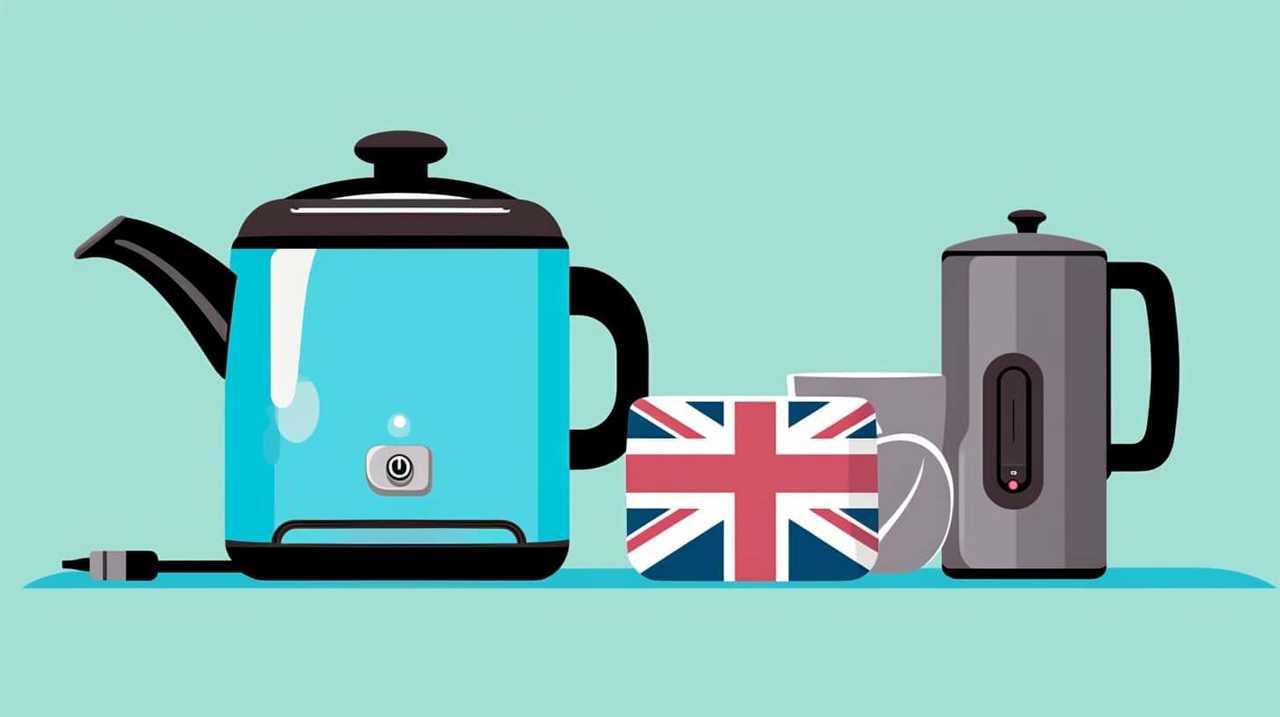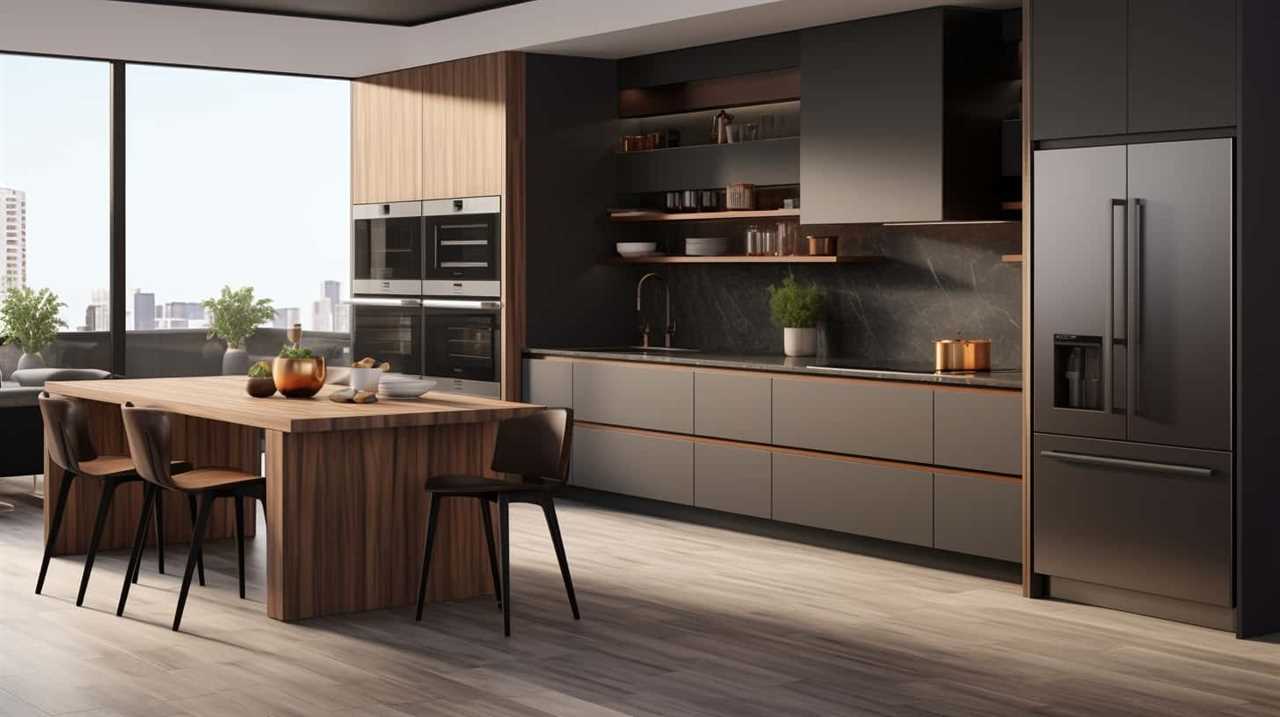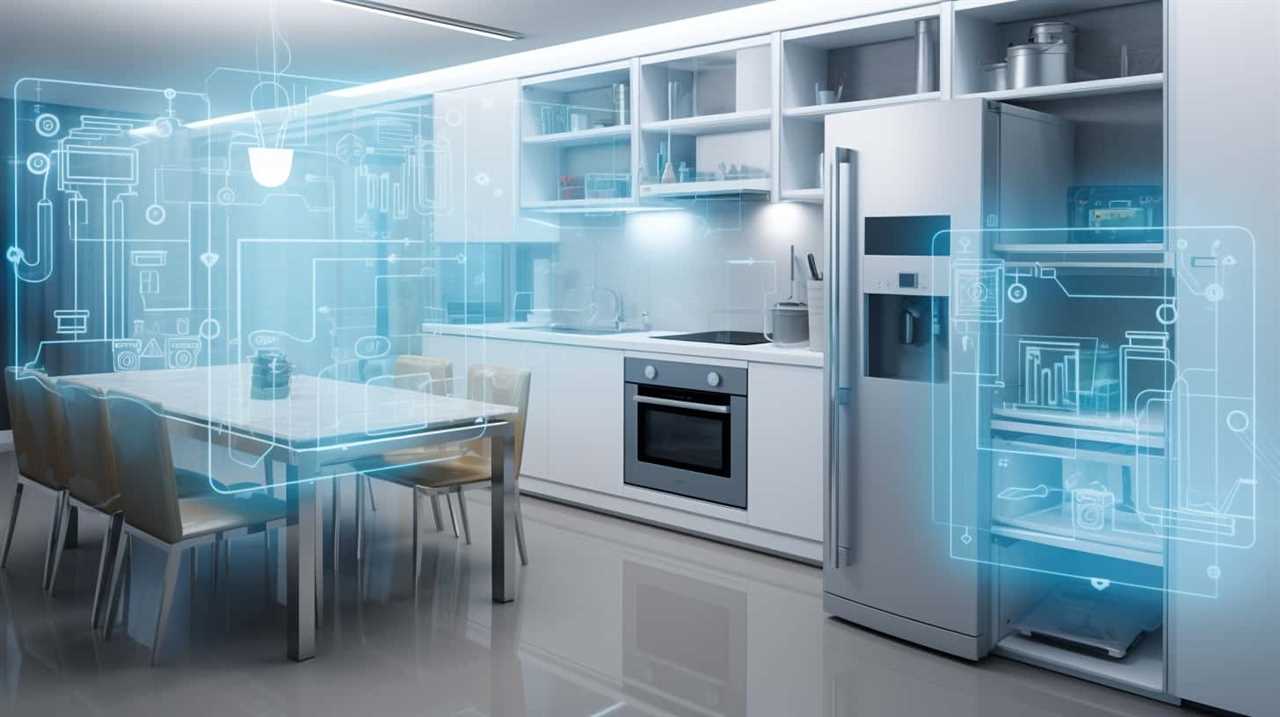In the world of technology, the distinction between various devices and their functions can sometimes become unclear, leading us to wonder about their actual essence and utility. One common question is whether a household appliance can also function as a server.
To delve into this matter, we must first understand the definitions of both appliances and servers. An appliance typically refers to a device designed for a specific function, often with a user-friendly interface and limited customization options. On the other hand, a server is a powerful computer that provides services or resources to other computers or devices within a network.
This introduction aims to explore the characteristics, purposes, and benefits of both appliances and servers, ultimately seeking to determine if an appliance can truly function as a server.
Key Takeaways
- An appliance is a specialized hardware device that combines software and hardware components to perform specific functions, while a traditional server is a computer system that provides services to other devices on a network.
- Appliances offer higher performance and reliability, streamline and simplify complex tasks, and play a crucial role in enhancing network security and optimizing network performance.
- Advantages of using an appliance include specialized functionality and performance, simplicity and ease of deployment, smaller footprint and power consumption, and pre-configured and optimized solutions for specific tasks.
- Appliances offload specific tasks from traditional servers, improving overall network efficiency and reducing latency, and have key features such as simplicity and minimal configuration, reliability and specialized design, and integrated security features.
Definition of Appliance
An appliance, in the context of computing, can be defined as a specialized hardware device that combines software and hardware components to perform specific functions, typically serving as a dedicated server.

These devices are purpose-built and optimized for specific tasks, offering a higher level of performance and reliability compared to general-purpose servers. They are designed to streamline and simplify complex tasks, providing a more efficient and cost-effective solution for businesses.
In networking, appliances play a crucial role in enhancing network security, optimizing traffic management, and improving overall network performance. They provide advanced features and functionalities, such as firewall protection, intrusion detection and prevention, virtual private networking (VPN), and load balancing.
Definition of Server
When discussing the definition of a server, it is important to compare and contrast it with an appliance.
While a traditional server is a computer system that provides services to other devices on a network, an appliance is a self-contained, specialized device that performs specific functions.

However, with advancements in technology, appliances are now being used in networking to provide specific services, such as firewalls or load balancers.
Understanding the role of appliances in networking can help clarify the distinction between an appliance and a traditional server.
Appliance Vs. Traditional Server
The distinction between an appliance and a traditional server lies in their respective definitions as a compound noun. While an appliance is a self-contained device designed for a specific purpose, a traditional server refers to a computer system that provides services to other computers over a network. To better understand the comparison between appliances and traditional servers, let’s take a look at their roles and advantages:
| Appliances | Traditional Servers | |
|---|---|---|
| Role | Perform specific tasks or functions within a data center | Provide a wide range of services and applications |
| Advantages | Simplicity and ease of use | Flexibility and scalability |
| Reduced maintenance and support requirements | Customization and ability to handle complex workloads | |
| Rapid deployment and integration with existing infrastructure | Greater control over hardware and software configurations |
Role of Appliances in Networking?
Appliances play a crucial role in networking by fulfilling specific tasks and functions within a data center. These specialized devices are designed to provide specific services and perform dedicated functions to enhance network performance and security.

The role of appliances in security is of paramount importance, as they are responsible for protecting networks from unauthorized access, malware, and other potential threats. By implementing features such as firewalls, intrusion detection systems, and virtual private networks, appliances ensure that networks remain secure and safeguarded against external attacks.
Additionally, appliances have a significant impact on network performance by offloading specific tasks from traditional servers, thereby improving overall network efficiency and reducing latency. Their dedicated hardware and optimized software enable them to handle network traffic and execute tasks with greater speed and reliability, resulting in enhanced network performance and user experience.
Purpose of an Appliance
The purpose of an appliance is distinct from that of a server.
While a server is designed to handle various tasks and functions within a network, an appliance is focused on performing a specific function or set of functions.

Appliance functionality is more streamlined and targeted, allowing for efficient and dedicated processing of specific tasks without the need for additional configurations or customizations.
Server Vs. Appliance
An appliance serves a specific function, distinct from that of a server, by providing a targeted solution to a particular task or set of tasks. While servers are designed to handle a wide range of computing tasks and provide services to multiple users or applications, appliances are purpose-built devices that focus on a specific task or set of tasks.
Here are three key differences between servers and appliances:
- Scalability: Servers are designed to scale and handle increasing workloads by adding more resources, such as CPU, memory, and storage. On the other hand, appliances are typically designed to handle a specific workload and may not be easily scalable.
- Complexity: Servers are complex systems that require expertise to configure, manage, and maintain. Appliances, on the other hand, are often pre-configured and optimized for their specific task, making them easier to deploy and manage.
- Performance: Servers are generally more powerful and can handle a wide range of workloads simultaneously. Appliances, on the other hand, are optimized for specific tasks and can deliver superior performance for those tasks.
While cloud computing offers flexibility and scalability, there are advantages to using a server, such as greater control over hardware and software, lower latency, and improved security. Appliances, with their targeted solutions, can provide specialized functionality and performance that may not be easily replicated in cloud environments.

Appliance Functionality Explained
With a focus on specific tasks or sets of tasks, appliances serve a distinct purpose in providing targeted solutions, as discussed in the previous subtopic. The functionality of an appliance is designed to address a particular need or requirement, allowing for efficient and reliable performance in a specialized area.
One of the main advantages of appliances is their simplicity. They are often pre-configured and optimized for specific tasks, making them easier to deploy and manage compared to more complex server solutions. Additionally, appliances tend to have a smaller footprint and consume less power, which can result in cost savings and environmental benefits.
However, there are also some disadvantages to consider. Appliances may have limited scalability and flexibility compared to server solutions, and they may not be suitable for all use cases or environments. It is important to carefully evaluate the specific requirements before deciding on whether an appliance is the right solution for a given situation.
Purpose of a Server
Servers serve a crucial purpose in the efficient functioning of a networked system. They are responsible for managing and delivering various networking applications, ensuring smooth communication and data sharing among connected devices.

Here are three key purposes of a server:
- Centralized Storage and Data Management: Servers provide a centralized location for storing and managing data, allowing multiple users to access and share resources securely. They ensure data integrity, backup, and recovery, reducing the risk of data loss or corruption.
- Resource Sharing: Servers facilitate resource sharing by providing a platform for users to access and utilize shared hardware devices, such as printers or scanners, and software applications. This centralized approach improves efficiency, reduces costs, and enhances collaboration among users.
- Server Management: Servers require dedicated management to ensure their optimal performance and security. Server management involves tasks like monitoring server health, applying updates and patches, managing user access and permissions, and enforcing security measures to protect against unauthorized access or data breaches.
Key Features of an Appliance
Appliances, which are distinct from servers, possess key features that differentiate them within a networked system. These features contribute to the unique benefits that appliances offer.
One important feature of an appliance is its simplicity. Unlike servers, appliances are designed to be plug-and-play devices that require minimal configuration. This makes them easy to deploy and manage, saving valuable time and resources.
Another key feature is reliability. Appliances are purpose-built devices, specifically designed to perform a specific function. This specialized design ensures optimal performance and stability, reducing the risk of system failures.

Additionally, appliances often come with integrated security features, providing enhanced protection against cyber threats. Examples of appliances include network firewalls, load balancers, and backup appliances.
Key Features of a Server
Servers, in contrast to appliances, possess distinct key features that distinguish them within a networked system. These features contribute to the server’s role as a central point of access and control, providing numerous benefits to the network and its users.
Key features of a server include:
- Centralization: Servers centralize resources and services, allowing multiple users to access and share them. This facilitates efficient resource management and collaboration in a networked environment.
- Scalability: Servers are designed to handle increasing workloads and accommodate the growth of a network. They can be easily upgraded or expanded to meet the changing demands of users and applications.
- Reliability: Servers are built with redundancy and fault-tolerance in mind, minimizing downtime and ensuring continuous availability of critical services. This reliability is crucial for businesses and organizations that rely heavily on their network infrastructure.
Differences Between Appliance and Server
When comparing appliances and servers, it is important to consider their functionality and hardware requirements.

While both serve specific purposes in computing, appliances are typically designed for a specific task or application, while servers are more versatile and can handle a wide range of functions.
Additionally, appliances often have lower hardware requirements compared to servers, as they are optimized for their specific task and do not need to support multiple applications or users.
Functionality of Each
To understand the differences between an appliance and a server, it is important to consider their respective functionalities. Here is a functionality comparison between the two:
- Appliance: An appliance is designed for a specific purpose and comes pre-configured with software and hardware components. It is typically used for tasks such as data storage, network security, or content delivery. The advantage of an appliance is its simplicity and ease of use, as it is ready to use out of the box. However, the downside is that its functionality is limited to the specific task it is designed for.
- Server: A server, on the other hand, is a powerful computer system that provides services to other computers or devices on a network. It has a wide range of functionalities and can be customized to meet specific requirements. The advantage of a server is its versatility and scalability, as it can handle multiple tasks simultaneously. However, configuring and maintaining a server can be complex and requires expertise.
In the next section, we will explore the hardware requirements comparison between appliances and servers.

Hardware Requirements Comparison
A comparison of the hardware requirements between appliances and servers reveals distinct differences. While both appliances and servers play a crucial role in networking, their hardware specifications vary significantly. Here is a comparison table highlighting some key differences:
| Hardware Requirement | Appliance | Server |
|---|---|---|
| Processing Power | Lower | Higher |
| Memory | Less | More |
| Storage | Limited | Extensive |
Appliances typically have lower processing power, as they are designed for specific tasks and do not require the same level of computational capabilities as servers. They also tend to have less memory and limited storage, as they are optimized for their specific networking role. On the other hand, servers are built to handle a wide range of tasks and therefore require higher processing power, more memory, and extensive storage capacity.
In the next section, we will explore the similarities between appliances and servers, despite these hardware differences.
Similarities Between Appliance and Server
Appliances and servers share several similarities, frequently exhibiting comparable functionalities and capabilities in a professional capacity.

Here are three key similarities between appliance and server:
- Hardware:
Both appliances and servers consist of physical hardware components that enable them to perform their designated tasks. These components may include processors, memory, storage, and network interfaces. - Networking:
Both appliances and servers play important roles in networking environments. They can both be used to facilitate communication between devices, handle network traffic, and provide services such as firewalls, load balancing, and VPN connectivity. - Scalability:
Both appliances and servers can be scaled up or down to meet the needs of the network. This scalability allows organizations to easily expand their network infrastructure and accommodate increasing demands.
With these similarities in mind, let’s now explore some examples of appliance devices to further understand their functionalities and applications.
Examples of Appliance Devices
Appliance devices encompass a wide range of specialized tools designed to perform specific tasks in professional settings. In the realm of home automation, appliance devices have become increasingly popular. Examples include smart thermostats, which regulate temperature and energy consumption, and smart security systems that provide advanced surveillance capabilities. These devices not only enhance convenience but also offer increased security and energy efficiency.
In healthcare technology, appliance devices play a vital role in improving patient care and streamlining medical processes. Examples include medical imaging equipment such as X-ray machines and MRI scanners, which aid in diagnosis and treatment planning. Additionally, electronic health record systems and patient monitoring devices enable healthcare professionals to access and analyze patient data in real-time, enhancing the quality and efficiency of care.

Examples of Server Devices
In the realm of technology, server devices are essential components that facilitate various functions and processes in professional settings. These devices play a crucial role in data centers, where they store, manage, and distribute data and services to multiple clients or users.
Here are three examples of server devices:
- Rack-mounted servers: These are compact servers that can be easily stacked in a rack, saving valuable space in data centers. They are designed to handle high workloads and are commonly used in enterprise environments.
- Blade servers: Blade servers are modular servers that are housed in a chassis and share power, cooling, and networking infrastructure. They offer high density and scalability, making them ideal for virtualization and cloud computing environments.
- Tower servers: Tower servers are standalone servers that resemble desktop computers. They are ideal for small businesses or remote offices that require a single server for their operations.
Using server appliances offers several advantages, such as simplified management, improved performance, and increased reliability. These devices are specifically designed to handle server workloads efficiently, ensuring smooth operations in data centers.
Benefits of Using an Appliance
What advantages does using an appliance offer in a server environment?

Appliance servers provide several benefits that make them a popular choice for various use cases.
One advantage is their simplicity and ease of deployment. Appliance servers are typically pre-configured and come with optimized software, making them ready to use out of the box. This eliminates the need for complex installation and configuration processes, saving time and effort for IT professionals.
Additionally, appliance servers are designed to be highly reliable and secure. They often include built-in redundancy, failover mechanisms, and advanced security features, ensuring continuous operation and protection against potential threats.
Another advantage is their scalability. Appliance servers can easily accommodate growing workloads by adding additional units or upgrading hardware components. This flexibility allows organizations to adapt to changing demands without significant disruptions.

Benefits of Using a Server
Using a server offers numerous advantages in terms of performance, flexibility, and control. Here are three key benefits of using a server:
- Enhanced Performance: Servers are designed to handle heavy workloads and multiple simultaneous requests, resulting in improved performance and faster response times. With powerful processors, ample memory, and high-speed storage, servers can handle the demands of resource-intensive applications and large-scale data processing.
- Increased Flexibility: Servers provide a flexible computing environment that can be customized to meet specific needs. They offer the ability to scale resources up or down based on demand, ensuring optimal performance at all times. Additionally, servers support virtualization technologies, allowing multiple virtual machines to run on a single physical server, maximizing hardware utilization and reducing costs.
- Greater Control: By using a server, organizations have full control over their computing infrastructure. They can implement robust security measures, manage access rights, and enforce data protection policies. Servers also enable centralized data storage and backup solutions, making it easier to manage and protect critical business data.
Conclusion: Is Appliance a Server?
To conclude the discussion on whether an appliance can be considered a server, it is important to delve into the specific characteristics and functionalities of appliances in relation to traditional server systems.
While an appliance shares some similarities with a server, such as providing network services and storage capabilities, there are distinct differences that set them apart. One key difference is that appliances are typically purpose-built devices, designed to perform specific tasks efficiently and reliably.
On the other hand, traditional servers are more versatile and can handle a wide range of applications and workloads. Additionally, appliances often have a simplified user interface and are easier to deploy and manage compared to complex server systems.

However, it is worth noting that appliances may not offer the same scalability and flexibility as cloud servers. Despite this, the advantages of using appliances in networking, such as enhanced security, performance optimization, and simplified management, make them a valuable alternative to traditional servers in certain scenarios.
Frequently Asked Questions
Can an Appliance Be Used as a Server?
An appliance can be used as a server, but there are pros and cons to consider. Optimizing an appliance for server use involves ensuring sufficient processing power, memory, and storage capacity, as well as implementing appropriate security measures.
What Are the Main Differences Between an Appliance and a Server?
The main differences between an appliance and a server lie in their intended use and functionality. While an appliance is typically designed for a specific task or function, a server is a more versatile device that provides various services and resources to multiple clients.
Are There Any Similarities Between an Appliance and a Server?
There are both similarities and differences between an appliance and a server. While an appliance typically has a dedicated purpose and is preconfigured, a server is more versatile and can be customized. Both have their own pros and cons when used as servers.

Can You Provide Some Examples of Appliance Devices?
Appliance devices are essential in homes, serving various purposes. Examples include refrigerators, washing machines, and dishwashers. These devices simplify tasks, enhance efficiency, and improve the quality of life for individuals, making them indispensable in modern households.
What Are the Benefits of Using a Server Instead of an Appliance?
The benefits of using a server instead of an appliance include increased scalability, flexibility, and performance. Servers offer greater processing power, storage capacity, and networking capabilities, making them ideal for complex and demanding tasks compared to appliances.
Conclusion
In conclusion, while an appliance and a server may share certain similarities in terms of functionality and purpose, they are distinct in their nature and features.
An appliance is a self-contained device designed for a specific task.

On the other hand, a server is a powerful computer that provides services and resources to multiple users or clients.
Understanding the differences between these two is crucial for effectively utilizing their respective benefits and capabilities.










